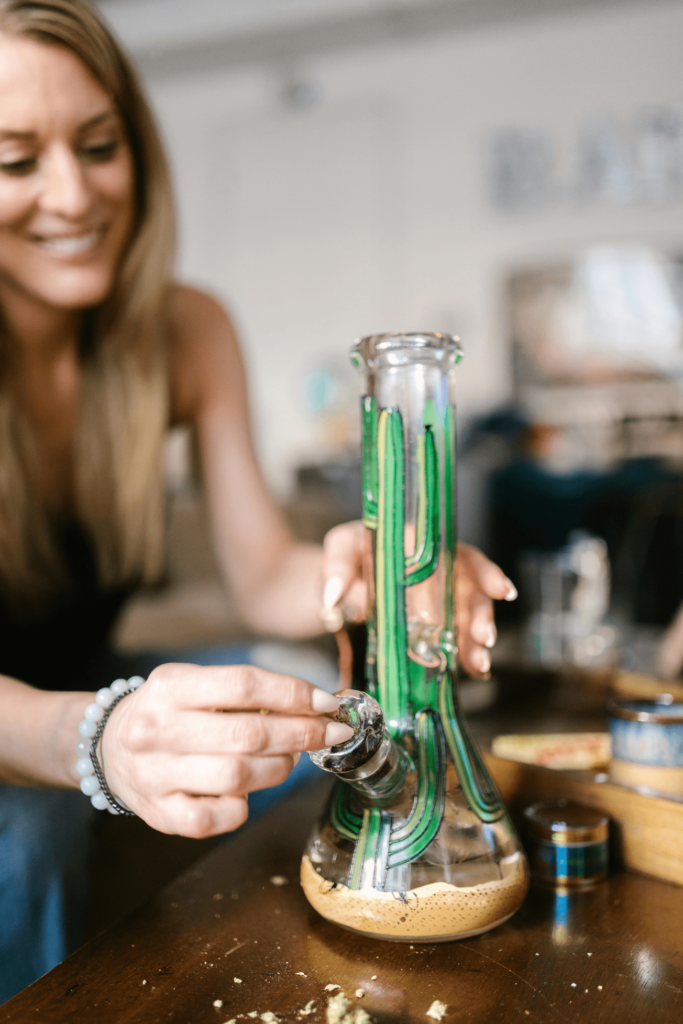Last updated on December 17th, 2024 at 01:02 pm
- 1. Defining Addiction
- 1.1 The Neurobiology of Addiction
- 1.2 Risk Factors for Addiction
- 2. Understanding Dependence
- 2.1 Physical Dependence
- 2.2 Psychological Dependence
- 3. Key Differences Between Addiction and Dependence
- 3.1 Behavioral Component
- 3.2 Functionality
- 3.3 Treatment Approach
- 4. The Role of Tolerance in Substance Use Disorders
- 4.1 Development of Tolerance
- 4.2 Tolerance and Risk
- 5. The Continuum of Substance Use
- 5.1 Stages of Substance Use
- 5.2 Importance of Early Intervention
- 6. Societal Impact of Substance Use Disorders
- 6.1 Economic Burden
- 6.2 Public Health Concerns
- 7. Treatment Approaches for Substance Use Disorders
- 7.1 Medical Interventions
- 7.2 Behavioral Therapies
- 7.3 Support Systems
- 8. Prevention Strategies
- 8.1 Education and Awareness
- 8.2 Policy Measures
- 8.3 Community-Based Approaches
- 9. Future Directions in Substance Use Disorder Research and Treatment
- 9.1 Personalized Medicine
- 9.2 Digital Health Interventions
- 9.3 Novel Pharmacotherapies
- Understanding Prescription Drugs and Addiction
- Prescription Drugs and Substance Abuse Risks
- Behavioral Addiction: More Than Substance Abuse
- Addiction versus Dependence: A Clear Distinction
- Recognizing Addiction Behaviors and Warning Signs
- Mental Health Issues and Substance Dependence
- Treatment for Dependence and Addiction
- Drug Withdrawal and Physical Health Implications
- Alcohol Abuse and Alcohol Use Disorders
- Addiction to Narcotics and Illicit Drugs
- Psychological Dependence on Substances
- Opioid Dependence vs. Opioid Addiction
- Understanding Tolerance and Dependence in Chronic Drug Use
- Addiction to Prescription Stimulants and Other Drugs
- Substance Dependence and Cognitive Function
- Substance Dependence and Social Stigma
- Addiction to Depressants and Sedatives
- Addiction and Employment Challenges
- Dependence on Painkillers and Pain Management Therapies
- Addiction and Emotional Well-Being
- Dependence on Over-the-Counter Medications
- Addiction to Synthetic Drugs and Club Drugs
- Substance Dependence in the Elderly
- Addiction and Family Dynamics
- Addiction to Energy Drinks and Caffeine
- Addiction and Co-Occurring Disorders
- Dependence on Anabolic Steroids
- Addiction to Inhalants
- Dependence on Antidepressants and Mood Stabilizers
- Addiction Relapse Prevention Strategies
- Dependence on Nicotine and Nicotine Replacement Therapy
- Frequently Asked Questions
- What Is The Difference Between Dependence And Addiction?
- How Does Prescription Drug Dependence Differ From Prescription Drug Addiction?
- What Are The Signs Of Substance Dependence?
- How Can Someone Identify Addiction Versus Dependence?
- What Are The Symptoms Of Withdrawal For Opioid Dependence?
- How Is Substance Abuse Related To Mental Health Issues?
- How Do Mental Health Professionals Address Dependence Vs. Addiction?
- What Are The Adverse Consequences Of Full-Blown Addiction?
- How Do Physical Withdrawal Symptoms Differ From Psychological Withdrawal Symptoms?
- What Is The Role Of Licensed Professionals In Treating Dependence And Addiction?
- How Can Dependence On Prescription Drugs Be Managed Without Addiction?
- What Are The Warning Signs Of Behavioral Addiction?
- What Treatments Are Available For Dependence Vs. Addiction?
- How Do People With Addiction Behaviors Differ From Those With Dependence?
- Can Addiction Develop From Dependence On Prescription Opioids?
- What Are The Effects Of Nicotine Replacement Therapy On Dependence And Addiction?
- How Is The Opioid Crisis Related To The Difference Between Dependence And Addiction?
- What Is The Role Of The National Helpline In Treating Addiction And Dependence?
- How Does Substance Dependence Impact Mental Health And Addiction?
- How Can Physical Dependence Differ Between Alcohol And Prescription Drugs?
Substance use disorders are complex conditions that can profoundly impact individuals, families, and society as a whole. While the terms “addiction” and “dependence” are often used interchangeably in casual conversation, they actually represent distinct concepts within the medical and scientific communities.
Understanding the nuanced differences between addiction and dependence is crucial for properly diagnosing and treating substance use issues.
Let’s discover the key distinctions between Dependence Vs. Addiction, including symptoms, impacts, and effective treatment paths for each condition.
1. Defining Addiction
Addiction is a chronic, relapsing brain disorder characterized by compulsive drug seeking and use despite harmful consequences. It is considered a brain disorder because drugs change the brain’s structure and how it works. These brain changes can be long-lasting and can lead to the harmful behaviors seen in people who abuse drugs.
Key features of addiction include:
- Loss of control over substance use
- Continued use despite negative consequences
- Intense cravings for the substance
- Prioritizing substance use over other activities and responsibilities
- Development of tolerance
- Experiencing withdrawal symptoms when not using
1.1 The Neurobiology of Addiction
Addiction involves complex interactions between brain circuits, genetics, the environment, and an individual’s life experiences. Research has shown that addiction affects the brain’s reward circuit by flooding it with dopamine. This overstimulation of the reward system produces the euphoric effects sought by people who use drugs and teaches them to repeat the behavior.
As a person continues to use drugs, the brain adapts by reducing its ability to respond to dopamine. This leads to the person feeling flat, lifeless, and depressed when not using the drug. They may then take more of the drug, trying to achieve the same dopamine high, which can lead to a dangerous cycle of addiction.
1.2 Risk Factors for Addiction
Certain factors can increase a person’s risk of developing an addiction:
- Genetic predisposition
- Environmental influences (e.g., family dynamics, peer pressure)
- Early exposure to drugs or alcohol
- Mental health disorders
- Trauma or adverse childhood experiences
- Lack of social support
2. Understanding Dependence
Dependence refers to a physical state in which the body has adapted to the presence of a drug. When a drug is removed, withdrawal symptoms occur. Dependence can occur with many types of substances, including prescription medications taken as directed by a doctor.
2.1 Physical Dependence
Physical dependence occurs when the body adapts to regular exposure to a substance. This adaptation leads to withdrawal symptoms when the substance is discontinued. Common withdrawal symptoms include:
- Nausea and vomiting
- Sweating
- Shaking
- Anxiety
- Insomnia
- In severe cases, seizures or hallucinations




2.2 Psychological Dependence
Psychological dependence involves the emotional and mental processes associated with substance use. It can manifest as:
- Strong cravings for the substance
- Difficulty concentrating without the substance
- Feeling anxious or depressed when not using
- Obsessive thoughts about obtaining and using the substance
3. Key Differences Between Addiction and Dependence
While addiction and dependence often co-occur, they are distinct concepts with important differences:
3.1 Behavioral Component
Addiction involves a behavioral component characterized by an inability to consistently abstain from substance use despite negative consequences. Dependence, on the other hand, is primarily a physical state that can occur even with proper medication use.
3.2 Functionality
Individuals with dependence may still function relatively normally in their daily lives, while those with addiction often experience significant impairment in various life areas, including work, relationships, and health.
3.3 Treatment Approach
Treating dependence often focuses on managing withdrawal symptoms and gradually tapering off the substance. Addiction treatment is typically more comprehensive, addressing psychological, social, and behavioral aspects in addition to physical dependence.
4. The Role of Tolerance in Substance Use Disorders
Tolerance is a phenomenon where a person needs to use more of a substance to achieve the same effect previously obtained with smaller amounts. It is a key factor in both dependence and addiction but does not necessarily indicate either condition on its own.
4.1 Development of Tolerance
Tolerance develops as the body adapts to the constant presence of a substance. This adaptation can occur through various mechanisms:
- Metabolic tolerance: The body becomes more efficient at breaking down and eliminating the substance
- Cellular tolerance: Cells become less responsive to the substance’s effects
- Behavioral tolerance: Learning to function while under the influence of the substance
4.2 Tolerance and Risk
While tolerance itself is not indicative of addiction or dependence, it can increase the risk of developing these conditions. As tolerance builds, individuals may increase their dosage to achieve desired effects, potentially leading to physical dependence or addictive behaviors.
5. The Continuum of Substance Use
Substance use exists on a spectrum, ranging from occasional use to severe addiction. Understanding this continuum can help in identifying potential problems and seeking appropriate interventions.


5.1 Stages of Substance Use
- Experimentation: Infrequent, often driven by curiosity
- Regular use: More frequent use, often in social settings
- Problematic use: Negative consequences begin to emerge
- Dependence: Physical adaptation to the substance occurs
- Addiction: Compulsive use despite significant harm
5.2 Importance of Early Intervention
Recognizing early signs of problematic substance use is crucial for preventing the progression to dependence or addiction. Early intervention can involve education, counseling, and lifestyle changes to address underlying issues contributing to substance use.
6. Societal Impact of Substance Use Disorders
Substance use disorders have far-reaching effects beyond the individual, impacting families, communities, and society as a whole.
6.1 Economic Burden
The economic cost of substance abuse in the United States is estimated to be hundreds of billions of dollars annually, including healthcare costs, lost productivity, and criminal justice expenses.
6.2 Public Health Concerns
Substance use disorders contribute to various public health issues, including:
- Spread of infectious diseases (e.g., HIV, hepatitis)
- Increased rates of accidents and injuries
- Strain on healthcare systems
- Mental health comorbidities
7. Treatment Approaches for Substance Use Disorders
Effective treatment for substance use disorders often requires a multifaceted approach tailored to individual needs.
7.1 Medical Interventions
- Detoxification: Medically supervised withdrawal management
- Medication-assisted treatment: Use of medications to reduce cravings and manage withdrawal
- Treatment of co-occurring mental health disorders
7.2 Behavioral Therapies
- Cognitive-behavioral therapy (CBT)
- Motivational interviewing
- Contingency management
- Family therapy


7.3 Support Systems
- Peer support groups (e.g., Alcoholics Anonymous, Narcotics Anonymous)
- Community reinforcement approaches
- Vocational rehabilitation
8. Prevention Strategies
Preventing substance use disorders is a crucial public health goal. Effective prevention strategies include:
8.1 Education and Awareness
- School-based prevention programs
- Public health campaigns
- Healthcare provider education on proper prescribing practices
8.2 Policy Measures
- Regulation of tobacco and alcohol advertising
- Prescription drug monitoring programs
- Substance use screening in healthcare settings
8.3 Community-Based Approaches
- After-school programs and youth activities
- Community coalitions addressing substance use
- Improving access to mental health services
9. Future Directions in Substance Use Disorder Research and Treatment
As our understanding of addiction and dependence evolves, new avenues for research and treatment emerge:
9.1 Personalized Medicine
Advances in genetics and neuroscience may lead to more targeted, individualized treatments based on a person’s unique biological and environmental factors.
9.2 Digital Health Interventions
Technology-based interventions, such as smartphone apps and virtual reality, show promise in supporting recovery and preventing relapse.
9.3 Novel Pharmacotherapies
Research into new medications that can address both the rewarding effects of substances and the underlying neurobiological changes associated with addiction is ongoing.


Understanding Prescription Drugs and Addiction
Prescription drugs can be beneficial for managing a range of medical conditions. However, the misuse of these medications often leads to dependency or drug addictions.
Prescription opioid and opioid medication are particularly susceptible to misuse. Health care providers are increasingly aware of the potential for addiction these substances carry. Even under medical supervision, prescription drugs can lead to dependency.
Prescription Drugs and Substance Abuse Risks
While prescription drugs are essential for treating moderate-to-severe pain, misuse can lead to substance abuse. Understanding of addiction is crucial for distinguishing between appropriate use and misuse.
Analgesic medication, when misused, can result in severe dependency. Symptoms of withdrawal include physical symptoms such as nausea, sweating, and abdominal pain. Consulting licensed professionals for medical advice is essential to mitigate these risks.
Dose reduction should be managed carefully to avoid withdrawal effects. Medical supervision can help prevent misuse turning into substance abuse.
Behavioral Addiction: More Than Substance Abuse
Behavioral addiction extends beyond physical substance use. Compulsive behaviors like internet addiction or gambling are considered behavioral addictions.
These behaviors are characterized by impaired control, similar to substance use disorders. Behavioral addictions can have serious adverse consequences, even in the absence of substances like illegal drugs or alcohol.
Behavioral addiction often requires the same level of intervention as substance abuse. Addressing compulsive behaviors is vital to prevent long-term negative impacts.
Addiction versus Dependence: A Clear Distinction
The difference between dependence and addiction is often misunderstood. Drug dependence involves a physical reliance on the substance, including withdrawal syndrome.
Opioid dependence and benzodiazepine dependence illustrate physical reliance well. Addiction, however, encompasses both physical dependence and compulsive cravings.
Addiction often includes drug-seeking behavior. Understanding the difference between dependence and addiction helps in managing dependence without addiction.


Recognizing Addiction Behaviors and Warning Signs
Recognizing addiction behaviors is key to early intervention. Common signs include increased tolerance levels and drug cravings.
Impaired control over substance use is another indicator. In the case of alcohol addiction, alcohol craving is a significant warning sign.
Substance abuse disorder often manifests through behaviors like time spent seeking drugs. Withdrawal from normal activities is a critical warning sign of a full-blown addiction.
Mental Health Issues and Substance Dependence
Mental health issues and substance dependence are often interconnected. People with addiction frequently have co-occurring mental health disorders.
These co-occurring disorders complicate treatment efforts. The National Institute on Drug Abuse emphasizes addressing both mental illness and physical illness in treatment.
Mental health professionals are crucial in managing substance abuse cases. A comprehensive management program can effectively treat dual diagnoses.
Treatment for Dependence and Addiction
Treatment for dependence and addiction varies significantly based on severity. Inpatient treatment may be required for severe cases.
Opioid addiction and alcohol use disorders often need inpatient treatment. Outpatient treatment programs are suitable for managing mild dependencies.
Addiction counseling services can support outpatient care. Effective drug addiction therapies often include behavioral interventions to mitigate withdrawal effects.
Drug Withdrawal and Physical Health Implications
Drug withdrawal can significantly impact physical health. Symptoms include physical withdrawal symptoms like shaking and nausea.
In severe cases, withdrawal can lead to Benzodiazepine withdrawal syndrome. Withdrawal from addictive drugs such as stimulants may require medical intervention.
Managing withdrawal under medical supervision is critical. This ensures withdrawal syndrome is controlled to prevent health complications.
Alcohol Abuse and Alcohol Use Disorders
Alcohol abuse is a significant public health issue. It can lead to alcohol use disorders that require long-term treatment.
Alcohol dependence vs alcohol addiction shows a clear distinction between physical and mental components. Alcohol craving and impaired control often indicate a chronic disease.
The International Classification of Diseases lists alcohol addiction as a disorder needing intervention. Treatment includes addressing both physical and psychological components.


Addiction to Narcotics and Illicit Drugs
Addiction to narcotics is often linked to illicit drugs. The opioid crisis has highlighted widespread prescription opioid abuse.
Abuse rates are rising, emphasizing the need for early intervention. Public Health England stresses recognizing early warning signs.
Addressing addiction to narcotics early can mitigate long-term consequences. Both illicit and prescription drugs are significant components of substance abuse.
Psychological Dependence on Substances
Psychological dependence involves strong emotional or mental reliance. This can occur with substances such as stimulants or hallucinogens.
Psychological dependence often involves obsessive thoughts about substance use. Anxiety when not using is a key feature.
Addressing psychological dependence requires focused counseling. Addiction support groups and addiction counseling services are recommended.
Opioid Dependence vs. Opioid Addiction
Opioid dependence and opioid addiction represent different states. Dependence involves physical adaptation to opioid medication.
Addiction, however, involves compulsive cravings and drug-seeking behaviors. Recognizing addiction from dependence is crucial for effective treatment.
Opioid dependence treatment includes medical supervision. Addiction intervention strategies are essential for preventing escalation.
Understanding Tolerance and Dependence in Chronic Drug Use
Tolerance levels often indicate growing drug dependence. Tolerance leads to the need for larger quantities for the same effect.
Chronic drug use causes the body to adapt. This adaptation can lead to substance dependence if not managed properly.
The difference between tolerance and dependence lies in the body’s response. Medical professionals need to assess tolerance to prevent dependence.
Addiction to Prescription Stimulants and Other Drugs
Addiction to prescription stimulants has been increasing. Dependence on antidepressants and pain relievers also shows a rising trend.
Careful management is required for these forms of addiction. Both inpatient treatment and outpatient programs are effective.
Licensed professionals provide support for managing withdrawal. Addressing drug dependence vs drug addiction helps in tackling mental health challenges.
Substance Dependence and Cognitive Function
Substance dependence affects cognitive function, impacting decision-making. Impaired impulse control is a major consequence.
Cognitive decline can contribute to ongoing addiction. Addiction intervention strategies include structured support to break this cycle.
12-step programs aim to improve cognitive health. Supportive environments encourage better decision-making for those in recovery.
Substance Dependence and Social Stigma
Social stigma complicates the process of seeking help. Substance dependence is often met with judgment, preventing effective treatment.
The stigma around prescription medications and illegal drugs hinders recovery. Encouraging access to addiction rehabilitation centers is crucial.
Healthcare providers and community support are vital. Addressing stigma can lead to better recovery outcomes.


Addiction to Depressants and Sedatives
Addiction to depressants is growing, especially sedatives like sleeping pills. Physical dependency often accompanies psychological dependence.
Symptoms of addiction include impaired control and withdrawal syndrome. Coordinated treatment is necessary to manage these symptoms.
Dependence withdrawal symptoms require medical attention. Health professionals can support recovery through well-coordinated care.
Addiction and Employment Challenges
Addiction can create significant employment challenges. Maintaining steady employment becomes difficult for addicted individuals.
Substance abuse leads to absenteeism and reduced productivity. Vocational rehabilitation is necessary for economic stability.
Addiction counseling services also play a role in recovery. Addressing addiction issues can improve employment outcomes.
Dependence on Painkillers and Pain Management Therapies
Dependence on painkillers is common in those with chronic pain. Pain management therapies must be used cautiously to prevent dependency.
Pain pills provide relief but carry addiction risks. Medical professionals recommend a balanced approach to pain relief.
Careful dose reduction is crucial. Medical supervision helps reduce risks associated with chronic pain management.
Addiction and Emotional Well-Being
Addiction negatively affects emotional well-being. Stress and anxiety are common among those addicted to stimulants or narcotics.
Addiction rehabilitation centers often address emotional health. Recovery programs include therapies aimed at emotional support.
Cognitive-behavioral therapy helps manage emotional stress. Improving emotional health supports overall recovery efforts.
Dependence on Over-the-Counter Medications
Over-the-counter medications can lead to dependence. Pain relievers and anti-anxiety medications are common examples.
Individuals often underestimate the risks of addiction to these substances. Medical supervision is crucial for managing withdrawal effects.
Symptoms of addiction include nausea and anxiety. Addressing these under medical guidance can ensure safe withdrawal.
Addiction to Synthetic Drugs and Club Drugs
Synthetic drugs and club drugs pose unique risks. Addiction to these substances is growing, particularly among younger demographics.
Bath salt abuse is a rising concern. These addictive substances impact both physical and mental health.
Dependence on stimulants from club drugs requires treatment. Substance dependence diagnosis often includes a cognitive assessment.


Substance Dependence in the Elderly
Substance dependence is a growing issue in the elderly. Prescription drugs like opioids and muscle relaxants often lead to dependency.
Addressing elderly substance dependence involves unique challenges. Effective care must consider physical and cognitive health.
Healthcare providers must screen elderly patients carefully. Proper support is key to overcoming substance dependence.
Addiction and Family Dynamics
Addiction has significant impacts on family dynamics. Relationships often suffer due to the emotional toll of substance abuse.
Isolation from family is common among people with addiction. Addiction counseling services can help mend family relationships.
Communication issues are frequent. Family-based interventions help in rebuilding trust and improving dynamics.
Addiction to Energy Drinks and Caffeine
Addiction to energy drinks is increasingly common. Dependence on caffeine can lead to physical dependency.
Physical symptoms of addiction to caffeine include headaches and irritability. Understanding substance dependence helps promote healthier habits.
Withdrawal syndrome from caffeine can be challenging. Managing these symptoms is essential for a healthier lifestyle.
Addiction and Co-Occurring Disorders
Addiction and co-occurring disorders often complicate treatment. Anxiety and depression are frequently seen alongside substance abuse.
Addressing mental health and addiction together is crucial. Comprehensive care models are more effective in achieving recovery.
Treatment must address both mental health issues and addiction. This integrated approach helps prevent relapse.
Dependence on Anabolic Steroids
Anabolic steroids are commonly used for physical performance. However, dependence on these substances carries health risks.
Physical health outcomes such as heart disease are a concern. Mood disturbances are also common in steroid dependence.
Intervention strategies must address both physical and psychological needs. Addressing these comprehensively supports long-term health.
Addiction to Inhalants
Addiction to inhalants is highly dangerous. These substances cause significant physical and neurological damage.
Inhalant use can quickly develop into a full-blown addiction. Early recognition of addiction behaviors is key to prevention.
Addiction counseling services provide the necessary support. Long-term harm can be avoided with appropriate early interventions.
Dependence on Antidepressants and Mood Stabilizers
Long-term antidepressant use can lead to dependency. Mood stabilizers also pose a risk for substance dependence.
People with a history of addiction are particularly vulnerable. Healthcare providers must monitor such patients closely.
Treatment plans may require adjustment over time. Addressing dependency without exacerbating mental disorders is crucial.


Addiction Relapse Prevention Strategies
Preventing relapse is essential in addiction recovery. Relapse prevention includes avoiding triggers and joining support groups.
Mental health professionals teach coping strategies to prevent relapse. A comprehensive management program helps maintain long-term sobriety.
Support groups like 12-step programs can be beneficial. These provide a structured approach to maintaining recovery.
Dependence on Nicotine and Nicotine Replacement Therapy
Nicotine dependence is common among smokers. Nicotine replacement therapy helps reduce cravings and withdrawal symptoms.
The effects of nicotine lozenge or patches assist in quitting. Nicotine dependence can be managed with consistent support.
Addiction recovery programs often include nicotine interventions. Transitioning away from smoking is crucial for overall health.
From Embrace Inner Chaos to your inbox
Transform your Chaos into authentic personal growth – sign up for our free weekly newsletter! Stay informed on the latest research advancements covering:
Narcissistic Personality Disorder (NPD)
Frequently Asked Questions
What Is The Difference Between Dependence And Addiction?
The difference between dependence and addiction lies in the nature of their symptoms and impacts. Dependence refers to a physical or psychological reliance on a substance.
This often involves symptoms of withdrawal when the substance is not consumed. Addiction, on the other hand, is characterized by compulsive behaviors and an inability to stop despite adverse consequences.
It involves both dependence and the behavioral aspect of losing control. The National Institute on Drug Abuse explains that dependence can occur without addiction.
Addiction inherently includes dependence along with behavioral changes. Recognizing this distinction is important for proper diagnosis and treatment.
How Does Prescription Drug Dependence Differ From Prescription Drug Addiction?
Prescription drug dependence involves developing a tolerance to the drug. This means needing more of the drug to achieve the same effects, which often leads to withdrawal symptoms.
Addiction to prescription drugs, however, is a more serious form of this problem. Individuals exhibit compulsive drug-seeking behaviors and impaired control over drug use.
According to Crozer Health, dependence may simply require careful medical supervision. Addiction often necessitates more comprehensive treatment due to the associated behavioral changes.
What Are The Signs Of Substance Dependence?
Signs of substance dependence include the need to increase doses to achieve desired effects. Physical withdrawal symptoms and unsuccessful attempts to reduce usage are also common signs.
Dependence can manifest as a consistent reliance on the substance to feel normal. Avoiding withdrawal is another major indicator.
Public Health England indicates that a major sign is the inability to decrease consumption. This persists despite the negative physical or psychological effects it might cause.


How Can Someone Identify Addiction Versus Dependence?
Addiction involves a broader spectrum of behaviors and impacts beyond just physical reliance. This includes engaging in dangerous activities to acquire substances or neglecting responsibilities.
Dependence is more about needing the substance to avoid physical withdrawal. The distinction lies in the behavioral component of addiction.
According to the American Psychiatric Association, addiction includes behavioral signs of impaired control. Dependence, however, is more linked to tolerance and withdrawal symptoms.
What Are The Symptoms Of Withdrawal For Opioid Dependence?
Symptoms of opioid withdrawal can include muscle aches, anxiety, sweating, and nausea. Intense cravings for the drug are also common.
These symptoms indicate a physical dependency. The body has adapted to the presence of opioids and reacts negatively when the drug is absent.
The National Institute on Drug Abuse notes that withdrawal syndrome is a critical component in differentiating dependence from casual use. This is especially true with prescription opioid medications.
How Is Substance Abuse Related To Mental Health Issues?
Substance abuse is closely linked to mental health issues. Individuals may turn to drugs to cope with anxiety, depression, or other conditions.
This can lead to both psychological and physical dependence. Treatment becomes more complex as both aspects must be addressed.
According to Crozer Health, the interaction between mental health and substance abuse often creates a cycle. This cycle exacerbates both conditions, requiring a dual approach for effective treatment.
How Do Mental Health Professionals Address Dependence Vs. Addiction?
Mental health professionals distinguish between dependence and addiction by evaluating physical symptoms like withdrawal. Behavioral signs such as compulsive use are also considered.
Dependence often requires medical detox and monitoring. Addiction treatment includes behavioral therapies and counseling to address underlying compulsions.
The American Psychiatric Association emphasizes that addiction is treated as a chronic disease. Dependence might be managed through dose reduction under medical supervision.
What Are The Adverse Consequences Of Full-Blown Addiction?
Full-blown addiction can lead to a host of adverse consequences. These include severe physical health issues, mental health decline, and legal or financial problems.
Addiction impacts every aspect of an individual’s life, from work to relationships. It often causes lasting damage that requires significant intervention.
According to the National Institute on Drug Abuse, these consequences make it crucial to recognize early signs. Early intervention is needed before the addiction worsens.


How Do Physical Withdrawal Symptoms Differ From Psychological Withdrawal Symptoms?
Physical withdrawal symptoms include muscle pain, sweating, nausea, and increased heart rate. Psychological symptoms might include anxiety, depression, or cravings.
Physical symptoms are often the result of the body adapting to the drug. Psychological symptoms indicate the brain’s dependency.
Public Health England states that both types of withdrawal can be debilitating. They require different approaches in treatment.
What Is The Role Of Licensed Professionals In Treating Dependence And Addiction?
Licensed professionals, including doctors and therapists, play a critical role in treating both dependence and addiction. They provide medical detox, therapy, and long-term management plans.
Their role includes diagnosing the type of disorder, whether dependence or addiction. Suitable interventions such as medications or counseling are then prescribed.
According to Crozer Health, effective treatment requires a comprehensive management program. This is led by licensed professionals who understand the nature of both conditions.
How Can Dependence On Prescription Drugs Be Managed Without Addiction?
Managing dependence on prescription drugs without progressing to addiction involves careful monitoring by healthcare providers. Dose reduction and alternative therapies are key strategies.
Dependence requires addressing physical reliance but without the compulsive behaviors that characterize addiction. Careful monitoring prevents progression.
The National Institute on Drug Abuse suggests using pain management therapies. Tapering off medications under medical supervision helps mitigate the risk of addiction.
What Are The Warning Signs Of Behavioral Addiction?
Warning signs of behavioral addiction include spending excessive time engaging in the activity. Neglecting daily responsibilities is also a common indicator.
Distress when unable to engage in the behavior is another sign. Unlike substance dependence, behavioral addiction involves compulsions around activities like gambling or internet use.
According to the American Psychiatric Association, behavioral addictions are characterized by impaired control. This is similar to substance abuse, even though there may be no physical withdrawal symptoms.


What Treatments Are Available For Dependence Vs. Addiction?
Dependence treatments often include gradual dose reduction. Physical withdrawal management is also a focus.
Addiction treatments involve behavioral therapy, counseling, and sometimes medication-assisted treatment. Addiction is considered more complex, as it includes both mental and physical components.
The National Institute on Drug Abuse highlights that comprehensive treatment plans are necessary for addiction. This includes 12-step programs or inpatient treatment for severe cases.
How Do People With Addiction Behaviors Differ From Those With Dependence?
People with addiction behaviors often exhibit drug-seeking behavior and a lack of control. Continued use despite negative consequences is also typical.
Dependence does not necessarily include such behaviors. It primarily involves tolerance and withdrawal symptoms.
According to Crozer Health, while dependence can be managed with medical advice and monitoring, addiction requires intensive behavioral intervention. This is due to the compulsive nature of use.
Can Addiction Develop From Dependence On Prescription Opioids?
Addiction can develop from dependence on prescription opioids. This happens when the user begins to exhibit behaviors like taking larger quantities than prescribed or using the drugs compulsively.
Dependence on opioids can transition to addiction if left unmanaged. Proper medical supervision is essential to prevent this progression.
The National Institute on Drug Abuse warns that opioid dependence has a high potential for addiction. It is crucial to adhere strictly to prescription guidelines.


What Are The Effects Of Nicotine Replacement Therapy On Dependence And Addiction?
Nicotine replacement therapy (NRT) helps manage withdrawal symptoms and dependence. It provides controlled amounts of nicotine without the harmful chemicals in cigarettes.
NRT reduces physical dependence on nicotine. It also addresses psychological addiction through behavioral changes.
The American Psychiatric Association notes that NRT is a helpful component of a broader treatment plan for smoking cessation. It must be managed to prevent replacement dependence.
How Is The Opioid Crisis Related To The Difference Between Dependence And Addiction?
The opioid crisis has highlighted the blurred lines between dependence and addiction. This is especially true with prescription medications.
Many individuals who develop opioid dependence may progress to addiction. This can occur due to inadequate monitoring or misuse of prescriptions.
According to the National Institute on Drug Abuse, the opioid crisis underscores the need for a clear understanding of these terms. This ensures appropriate treatment and prevents addiction from developing out of physical dependence.
What Is The Role Of The National Helpline In Treating Addiction And Dependence?
The National Helpline provides resources, support, and guidance for individuals struggling with addiction or dependence. It connects them to appropriate treatment programs.
This helpline plays a crucial role in offering immediate assistance. It also links people to licensed professionals and support services.
The National Institute on Drug Abuse emphasizes that early intervention through resources like the National Helpline is crucial. It helps in managing and overcoming both dependence and addiction.
How Does Substance Dependence Impact Mental Health And Addiction?
Substance dependence can severely impact mental health by exacerbating anxiety, depression, and other mental disorders. This, in turn, can increase the likelihood of developing addiction.
The relationship between substance dependence and mental health is cyclical. This often leads to dual diagnoses that require specialized treatment.
According to Public Health England, addressing both mental health and substance dependence simultaneously is key. This approach leads to effective treatment.
How Can Physical Dependence Differ Between Alcohol And Prescription Drugs?
Physical dependence on alcohol often involves severe withdrawal symptoms like tremors, seizures, and delirium. Prescription drug dependence, however, can manifest through symptoms like nausea, headaches, or muscle pain.
Each type of substance creates different physical effects when dependence is present. Recognizing these differences is essential for treatment.
The National Institute on Drug Abuse points out that understanding these differences is important. It helps in choosing the appropriate treatment and intervention strategies to manage withdrawal effectively.




